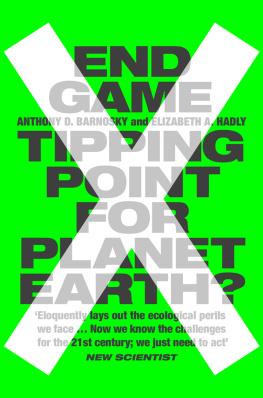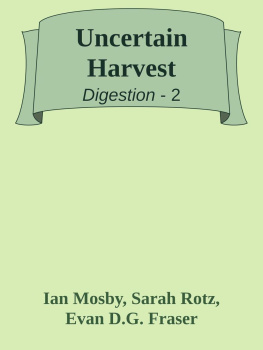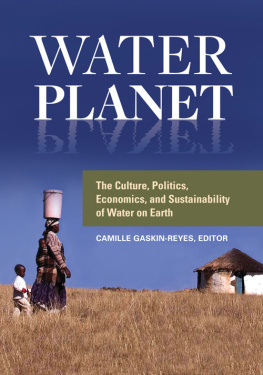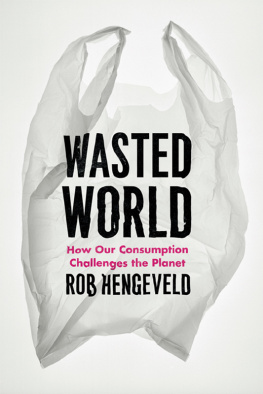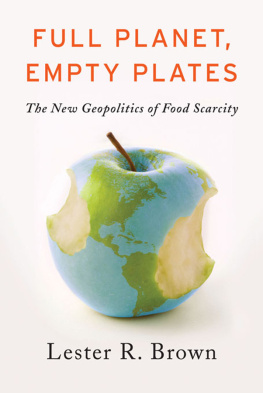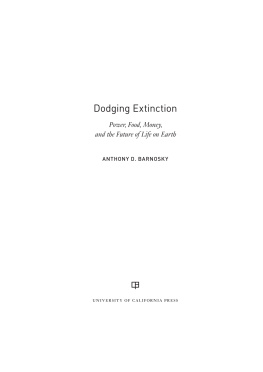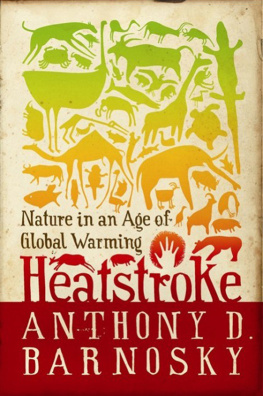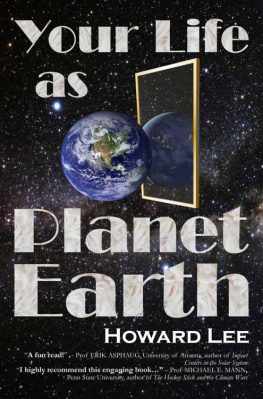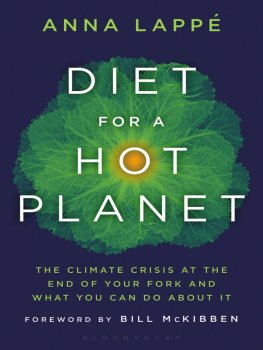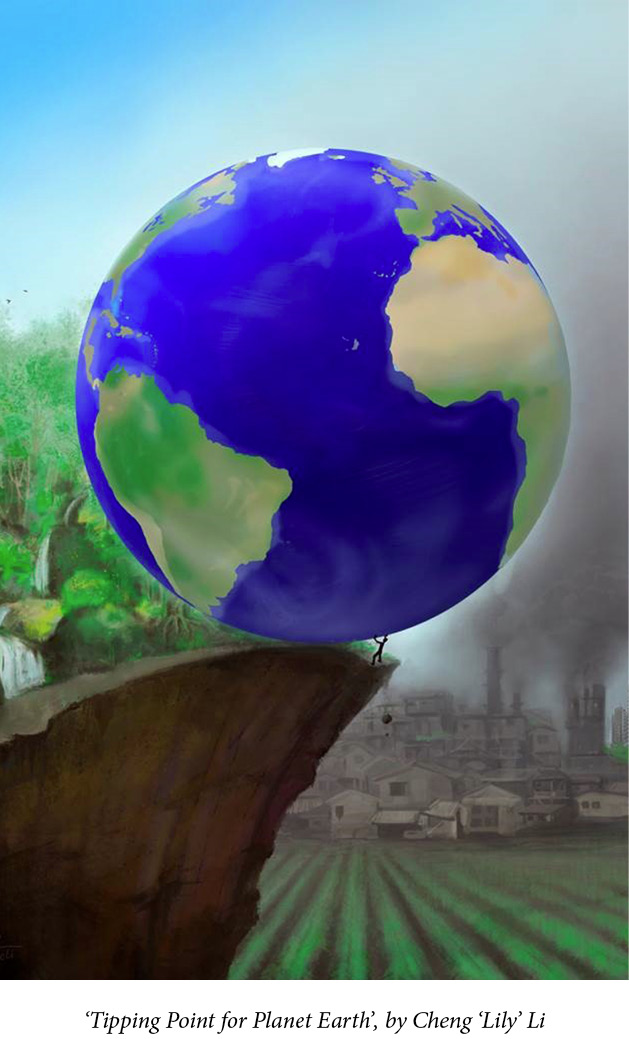Copyright Anthony D. Barnosky and Elizabeth A. Hadly 2015
All rights reserved under International and Pan-American Copyright Conventions. By payment of the required fees, you have been granted the non-exclusive, non-transferable right to access and read the text of this e-book on screen. No part of this text may be reproduced, transmitted, downloaded, decompiled, reverse engineered, or stored in or introduced into any information storage retrieval system, in any form or by any means, whether electronic or mechanical, now known or hereinafter invented, without the express written permission of HarperCollins e-books.
To our parents, Emma & Michael Barnosky and
Jane Grassman Hadly & William McKell Hadly,
whose work to make a better world, each in
their own way, made us who we are.
And to our daughters, Emma and Clara,
who carry on with the future.
Introduction
This is a story of a journey. Like most journeys, it started out as a personal quest, but for us it has also been a professional one. It began when we were young scientists, driven mostly by curiosity and looking for the next big adventure. We found adventures aplenty, because our jobs as palaeoecologists people who study how our planet changes through time took us to remote places all over the world. Along the way we fell in love and got married, and then the personal and professional adventures started inexorably to intertwine. We had one daughter, and a few months later got her a passport and hopped a plane to Australia. Then another daughter, same routine, but this time it was six weeks in Patagonia. By the time our kids were two-year-olds, theyd spent many nights in wilderness tents with us, buried their fingers in koala fur, been carried on our backs as we forded waist-deep rivers and stared down grizzly bears, and fallen sound asleep in their snugglies as we skied back-country trails. By the time they were fifteen, they had their own list of exploits: theyd hunkered down in their own tent as lions paced through camp, taught our graduate students the Latin names of various species, trapped rodents in Patagonia, faced off angry rattlers in the Oregon desert, and watched grapefruit-sized chicken-eating spiders lead around their hundreds of young on a dark Amazonian night.
By now weve travelled to every continent in the world, save Antarctica; sometimes together, sometimes alone, sometimes with our daughters, sometimes not. All those trips were research expeditions as well as adventures, each of them undertaken to learn something about how nature worked in the places on which we hoped humans had not yet laid a heavy hand. And we did discover answers to some of the questions we were asking like how animals respond to climate change that isnt caused by people, what causes mass extinctions, how ecosystems are assembled, and how evolution works at the genetic level to keep species alive.
But we also discovered that as the years went by and the personal and professional experiences added up, the questions we were asking ourselves began to change. From the personal perspective, the more different places we visited, the more they seemed the same in a very important respect: the values that people hold dear. Eventually we came to understand that the basic wants, needs and emotions that draw people together are much more deep-seated than those that separate cultures and countries. It didnt matter whether we were with the native Inupiat in an Arctic fishing village, with an indigenous tribe in the jungle of Peru, with scientific colleagues in India, or with executives imbibing at a fancy hotel in one of the great cities of the world. Everyone seemed united in wanting a healthy, comfortable life, putting family and friends first, and in the joy they took in basic pleasures like a good meal, a good laugh, or a pleasant stroll through a pretty place. And without exception, no matter the religion, the country, the political views or the economic class, everyone wanted the best for their children, and hoped that as their sons and daughters grew up, the world would just get better and better. As we watched our own daughters grow up, listening to their own dreams and hopes, we realised that we were no different from anyone else in those respects. Adventure and curiosity were no longer the be-all and end-all; giving our kids, and everyone elses, the future they deserve became much more important. And our lives in science began to change.
The more we saw, the more our professional perspective shifted. At some point the individual expeditions came to seem more and more like beads on a string, each bead distinct, but when all were taken together, forming a pattern that was hard to miss. And the pattern was that the world was changing before our eyes, much faster than any past changes we were familiar with from our studies of the deep-time history of the planet. Much of our earlier work had revolved around climate change before people got in on the act, so we knew what pace and magnitude of warming temperatures could be considered normal in the planets history, and there was no doubt about it: what was happening today was way too much and way too fast. Likewise, wed worked hard to figure out why species died out in the past, and what normal levels of biodiversity should be, both in terms of numbers of species and their genetic diversity. Again, the losses we were seeing now from giant otters in Amazon lakes, to wild dogs in Africa, to amphibians in the Rocky Mountains were way too many.
We started to wonder, long and hard, about what exactly was driving the unusual and rapid changes that were happening all over the world. We knew, of course, the broad brush of the answer: people. The ecologists whose articles we had studied and who we now worked with on a daily basis were more senior than us, and had been publishing research about how people were changing the planet for decades. In some cases they had been reaching out and trying to spread that message to the world. But reading it in a scientific journal or book, or hearing about it in a professional presentation, didnt resonate at the gut level as much as it should have. Yes, we knew wed been born into a world that held fewer than three billion people, and that as we progressed through our lives and careers, that number had more than doubled. But like most people, wed also grown up in a world of limited horizons that made it pretty hard to observe first-hand the connection between more people and planet-sized changes Tony was born into a poor working-class family in small-town Colorado and never saw much else until well into his twenties, and Liz grew up as a military brat, moving from one army base to another every couple of years, each one looking very much like the next, albeit in many different states and different countries. But eventually we began to connect the dots from all the places wed travelled to in our careers, and we saw the links between the added billions of people in our lifetime, and hunger, poverty and unhappiness.
Through the years we also saw how it was getting harder and harder to find places that felt they hadnt been changed in a big way by people. The haze from faraway cities or power plants or wildfires would often obscure our view, even when we thought we were in the middle of nowhere. On our plane journeys from one part of the world to the next, the features we saw on the landscape below were usually farms and pastures, unless they were barren desert, open ocean or rough mountainous terrain. On night-time flights, the lights from cities and highways seemed to spread out below us everywhere. When we started compiling some numbers, we knew why: almost 50 per cent of Earths land has been changed from forests and prairies to farms and pavement. That meant that each person on Earth requires about two acres of land, on average, to survive, given current diets, expectations and ways of doing business. We realised that the ratio of used land to people cant keep up for very much longer, given how fast were adding human bodies to the world, and that weve already used up nearly all the good land.

